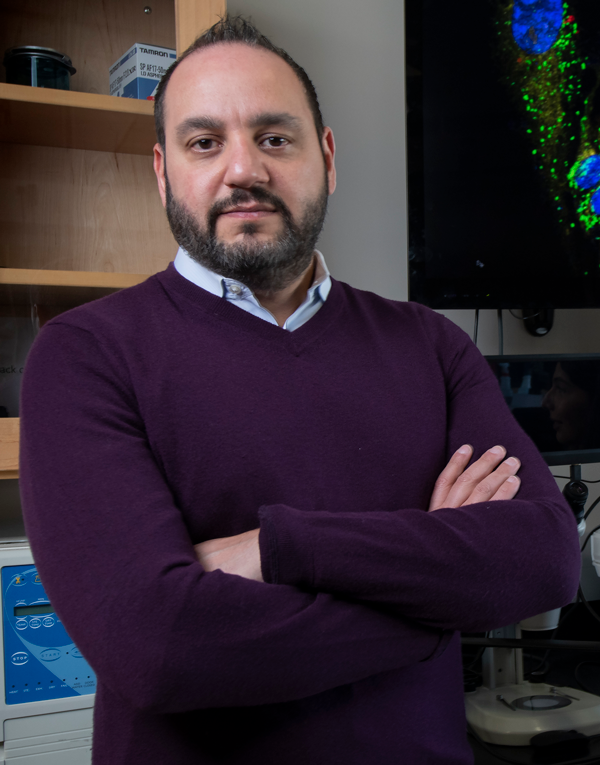NIH Awards Kheradvar $3.3 Million for New Cardiac Imaging Technology to Study Pulmonary Arterial Hypertension

Feb. 25, 2022 - Pulmonary arterial hypertension (PAH) is a rare but serious condition in which high blood pressure occurs in the arteries that carry blood from the heart to the lungs. A progressive disease, it can lead to heart failure. To diagnose and monitor PAH, physicians conduct right heart catheterization, an invasive test to measure the pressure inside the heart and lungs. UC Irvine’s Dr. Arash Kheradvar and his team have developed an alternative noninvasive imaging technology that could be used more widely to help physicians diagnose and follow up this condition in patients.
Kheradvar, professor of biomedical engineering, has been working over 10 years on the technology. Called echocardiographic particle image velocimetry (echo-PIV), it uses high frequency sound waves to scan the blood velocity and other characteristics of the heart. He has received a five-year $3.3 million award from the NIH’s National Heart, Lung and Blood Institute to study the energy state of the right ventricle of patients with pulmonary arterial hypertension, using echo-PIV,and to test the feasibility of this approach for monitoring disease progression and regression. Noninvasive measurement of the right heart’s energy state could provide objective insights into the functional status of the heart, instead of the current use of right heart catheterization.
“We believe much more information regarding the hemodynamics of the right heart can be inferred from noninvasive echo-PIV, helping us understand the unidentified mechanisms of the disease,” said Kheradvar.
According to Kheradvar, many centers around the world do not routinely perform right heart catheterization during follow-upcare for PAH patients, for a variety of reasons, including its invasive nature, cost or availability.
Kheradvar is working with an interdisciplinary team on the project and will test the technology at Cedars Sinai Medical Center. “I am very excited about this project being funded by NHLBI. More importantly, I sincerely hope that using 3D Echo-PIV in lieu of invasive right heart catheterization minimizes patients’ suffering.”
The team includes Daniel Gillen, UCI professor and chair of the Department of Statistics; Gianni Pedrizzetti, professor of fluid mechanics at University of Trieste; and Cedars Sinai physicians Drs. Victor Tapson, Bob Siegel and Siddharth Singh.
– Lori Brandt
